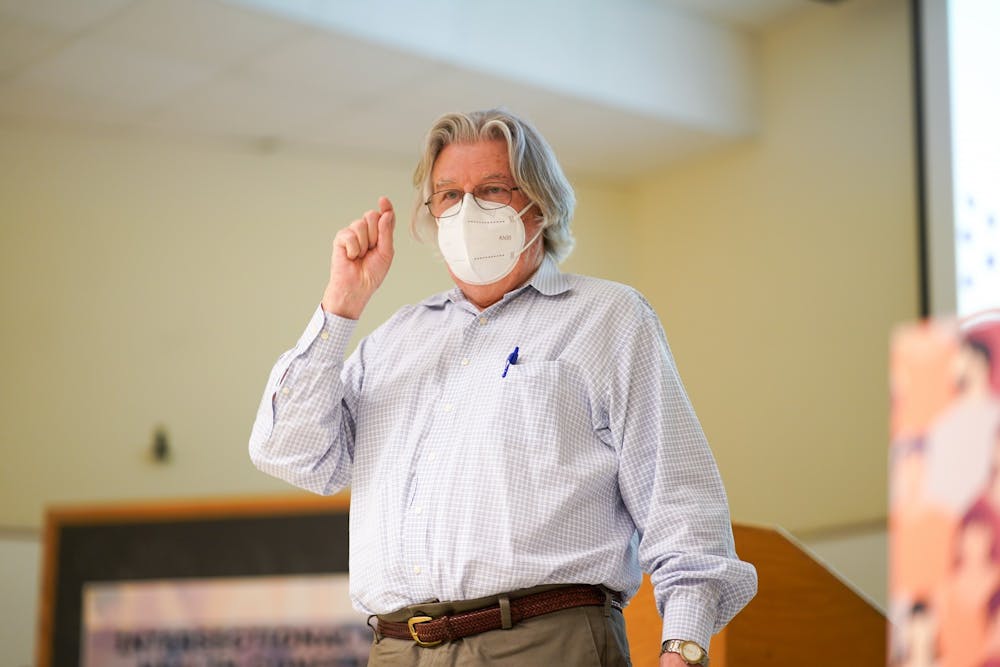When Yuyao Josefynick Huang was a 16-year-old student in Beijing, he founded the World Youth Mentality Alliance, a nonprofit organization that combines research, activism and peer counseling to provide mental health services.
After noticing the emphasis that his high school placed upon academic success and his classmates' resulting stress, Huang began to brainstorm ways to allocate resources from high schools in Beijing to make support more accessible.
“I’m from a really traditional high school, so a lot of times, we see people that are really stressed and anxious," Huang said. "In our culture, we often tie our performance to our own character."
Huang discussed his nonprofit organization at the Intersectionality and Mental Health Conference, hosted by the executive branch of the UNC Undergraduate Student Government on March 3.
WYMA seeks to help students navigate a variety of experiences and topics, from career ambitions and academic performance to gender identity and sexual orientation. Since the program launched in Chapel Hill last year, Huang said it has served around 280 clients.
In a process called PeerGuiding, WYMA combines counseling and coaching to provide a space where peers can share their thoughts and resources through open dialogue.
Huang emphasized that he prefers the term "mentality" over "mental health."
"I believe we should take care of our mentality, where I define as the strength of courage and resilience as life is hard," he said in an email to The Daily Tar Heel.
At the conference, Huang was joined by keynote speaker Edwin Fisher, a professor in the Gillings School of Global Public Health, and a panel of student speakers to discuss a variety of mental health topics and the intersection between race, class, gender and other individual characteristics.



